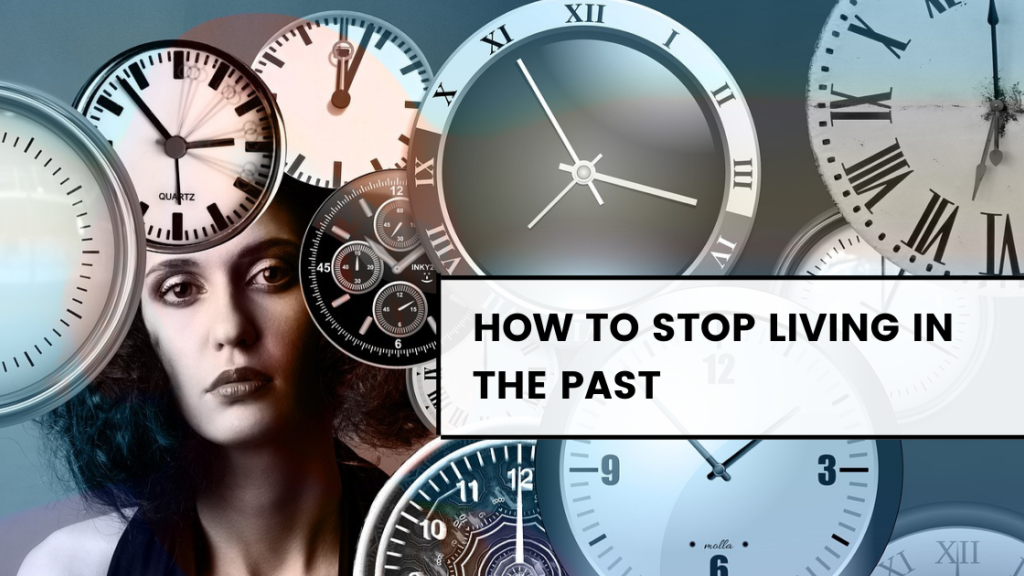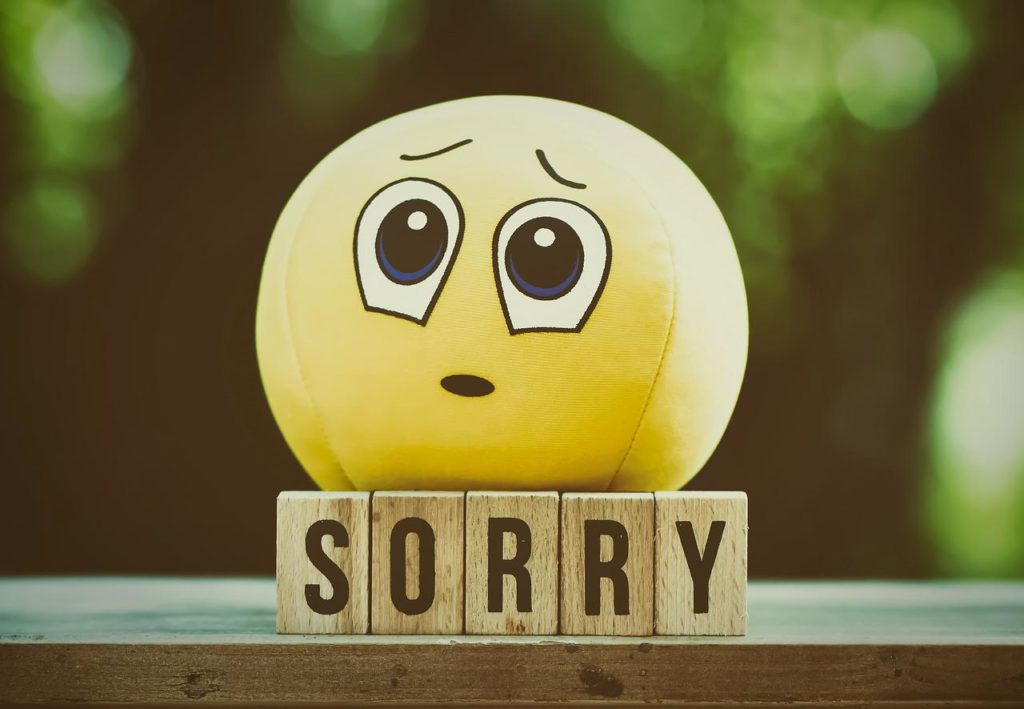Do you ever feel like you’re stuck in the past?
Like you can’t move on from what happened, and it’s preventing you from living your life to the fullest?
If so, you’re not alone!
Many people find themselves stuck in the past, unable to let go of their memories and experiences. But fortunately, there are ways to stop living in the past and start moving on.
This article will discuss 21 powerful techniques on how to stop living in the past and live a happier life!
Here’s what you’ll learn:
Let’s get right into it.
What Does Living in the Past Mean?
Living in the past means dwelling on past experiences and events, often to the point of interfering with your present life. You may find yourself constantly thinking about what happened, replaying negative thoughts, and thinking about past mistakes repeatedly.
Or, you may avoid certain activities or places because they remind you of the past.
Living in the past can also manifest as an obsession with reliving old experiences.
For example, you may find yourself constantly talking about what happened, or you may try to recreate past situations.
Ultimately, living in the past prevents you from fully enjoying your present life.
Why Do People Live in the Past?
There are many reasons why people live in the past.
For some, it may be due to a traumatic event that they can’t seem to move on from.
Others may have difficulty letting go of happy memories and experiences, fearing that they will never have anything as good in the future.
In some cases, living in the past may be a way to avoid facing the present.
For example, you may dwell on old memories because you’re unhappy with your current life.
Whatever the reason, it’s essential to let go of the past and move on.
Why Should You Stop Living in the Past?
One of the main reasons you should stop living in the past is that it prevents you from fully enjoying your present life. You may miss out on new experiences and opportunities because you’re too focused on past mistakes.
Secondly, living in the past can be detrimental to your mental health. It can lead to anxiety, depression, and other mental health problems.
Living in the past is also selfish since you deny people in your life the chance to get to know the real you. If you’re always living in the past, how can people know who you are in the present?
Living in the past can also hold you back from achieving your goals. If you’re constantly dwelling on old experiences, it’s hard to focus on creating a more positive future.
Finally, holding on to the past prevents you from moving on and finding happiness.
So how do you stop living in the past? Here are 21 powerful ways:

How to Stop Living in the Past
#1. Examine Your Past
To stop living in the past, you’ll first need to gain some clarity on why you’re still attached it.
Examine your past and identify the experiences or events that are still affecting you. These could be both good and bad experiences. Think about how these experiences have shaped your life and how they continue to influence your thoughts and behavior.
Gaining clarity on your past will help you understand why you’re still attached to it and how to let go.
Some people find it helpful to write down their thoughts or talk to a therapist about their experiences. Any of these can be a great way to gain insight into your past and begin the process of moving on.
#2. Take Responsibility for the Past
With some clarity on why you’re still attached to the past, the next you should do is take responsibility for your role in the experience.
This doesn’t mean that you’re responsible for the entire experience, but rather that you need to own your part in it.
For example, if you were in an abusive relationship, it’s essential to take responsibility for your role in the relationship. You may have allowed the abuse to happen or stayed in the relationship for longer than you should have.
Taking responsibility for your role in the past will help you move on from it. It’s also an essential step in creating meaningful relationships in the future.
If you’re having trouble taking responsibility for your past, talk to a therapist or counselor. They can help you work through any feelings of guilt or shame and start to take ownership of your part in the past.
Related: Reasons Why My Past Does Not Define Me
#3. Acknowledge The Emotions You Get Due To Past Experiences
One of the main reasons people dwell on the past is because they’re trying to avoid the negative feelings associated with it.
However, avoidance only makes these emotions worse in the long run. The best way to deal with your emotions is to acknowledge them and allow yourself to feel them.
This doesn’t mean that you should dwell on the negative emotions or try to relive the experience. Instead, you should allow yourself to feel the emotions and then let them go.
Acknowledge the hurt, pain, anger, or any other emotion you’re feeling. Once you’ve acknowledged these negative emotions, start working on this next strategy.
#4. Process and Heal From the Emotions You Feel
The next step after acknowledging your emotions is to start processing and healing from them.
This can be a long and challenging process, but it’s necessary if you want to move on from the past.
One way to do this is to talk to someone about your feelings. This could be a therapist, counselor, friend, or family member. Talking about your emotions can help you start to understand and accept them.
Another way to process and heal your emotions is to express them creatively. This could be through writing, painting, drawing, or any other art form.
You can also try to release your emotions through physical activity. This could be by working out, going for a run, or hitting a punching bag.
Find what works best for you, and start processing and healing the emotions you’re feeling. It’s important to remember that this is a process, and it will take time. Don’t try to rush it or force yourself to feel better before you’re ready.
#5. Identify Any Lessons Learned From the Experience You Keep Reliving
One of the main reasons people dwell on the past is because they haven’t learned the lessons from the experience.
If you want to move on from negative memories, it’s important to take some time to identify any lessons you may have learned.
For example, if you keep reliving a failed relationship, try to identify what went wrong and what you could have done differently. Maybe you didn’t communicate your needs, or maybe you stayed in the relationship for too long.
Identifying the lessons you learned from your past experiences will help you move on from them. It will also prevent you from making the same mistakes in future experiences.
If you’re having trouble identifying the lessons you learned, talk to a therapist or counselor. They can help you work through your past experiences and find the lessons you learned from them.
Once you’ve identified the lessons you learned, it’s time to start working on this next strategy.

#6. Identify Any Positive Aspects of the Experience
It’s easy to focus on the negative aspects of a past event. However, there are usually some positive aspects as well.
For example, if you’re dwelling on a failed relationship, you might have learned how to communicate better or be more independent.
Focusing on the positive aspects of your past experiences will help you see them in a more balanced way. It will also help you focus on the present and future instead of dwelling on the past.
If you’re having trouble identifying the positive aspects of your past experiences, talk to a friend or family member. They might be able to help you see the experience in a different light.
#7. Stop Playing Victim
One of the reasons people dwell on the past is because they’re playing the victim card.
When you play victim, you give away your power and control.
But if you want to move on from your past, you need to stop playing victim. This means taking responsibility for your life and your choices. It also means taking control of your future. You can start by taking responsibility for decisions made in the past. If you made a mistake, own up to it and learn from it.
Then, start making choices that empower you. Choose what makes you happy, and don’t let anyone else control your life.
Finally, start taking action towards your goals. Don’t wait for someone else to do it for you.
Stop playing the victim and take control of your life.
#8. Apologize and Make Amends if Necessary
If you’ve done something that’s caused pain to someone else, it’s important to apologize and make amends.
This can be difficult to do, but it’s necessary if you want to move on from your past.
Start by apologizing for your actions. Then, try to make things right. This might mean making a financial compensation or doing something to help the person you hurt.
It’s important to apologize sincerely and without expectations. The goal is to take responsibility for your actions and make amends, not to get something in return.

#9. Forgive Even Without an Apology
Sometimes, people do things that hurt us, and don’t apologize. This can make it difficult to move on from the experience.
However, it’s crucial to forgive even if an apology wasn’t offered. Forgiving doesn’t mean forgetting what happened or condoning the person’s actions.
It means letting go of the anger and resentment you’re holding onto. This will help you move on with your life and focus on the present.
One way to let go of anger and resentment even if someone doesn’t offer an apology, is to write a letter to the person but don’t send it. In the letter, explain to the person how they hurt you, explain that you’ve forgiven them.
Then, destroy the letter or keep it in a safe place where you won’t see it. This will help you release your feelings and start to move on.
#10. Don’t Let Your Past Define You
Your past experiences don’t have to define you. You can choose how you want to be defined.
Start by thinking about the things that are important to you.
- What do you value?
- What are your strengths?
- What makes you happy?
Then, start living your life in a way that aligns with your values and goals. Don’t let your past experiences hold you back.
You can also define yourself by the way you treat others. Be kind, compassionate, and understanding. Show people that you’re more than your past experiences.
Don’t let your past define you. Choose how you want to be defined and live your life accordingly.
Related: Best Strategies For Letting Your Guard Down
#11. Focus on the Present
One of the best ways to stop living in the past is to focus on the present.
The present is all you have. It’s a gift. And it’s up to you how to use it.
So, start using your time wisely. Stop dwelling on the past and start living in the present.
Start by focusing on the things that are important to you. What do you want to achieve? What makes you happy? Then, start taking action towards your goals. Don’t wait for someone else to do it for you.
Finally, enjoy the present moment. Stop thinking about the past and savor the here and now.
#12. Don’t Wait for Closure
Sometimes, we wait for closure before we can move on. We want an apology or an explanation.
However, waiting for closure can keep you stuck in the past. It’s important to realize that not everyone will give you the closure you want. And that’s okay.
You don’t need closure from others to move on. You can give yourself closure.
Start by forgiving the person who hurt you. Then, let go of the anger and resentment you’re holding onto. This will help you move on with your life and focus on the present.
Finally, make peace with the past. Accept what happened and choose to move on.
#13. Focus on Things You Can Change About Yourself
There are some things we can’t change about our past. But there are other things we can change.
For example, you can’t change the fact that someone hurt you in the past. But you can change how you react to it. You can choose to forgive and move on.
Or, you might not be able to change the fact that you made a mistake. But you can learn from it and make sure not to repeat it in the future.
Focus on the things you can change about yourself. This will help you move on from your past and live in the present.
#14. Give Thanks For the Present and Find Joy In Everyday Activities
One of the best ways to stop living in the past is to focus on creating a fulfilling life in the present.
Start by using your time wisely and give thanks for the present moment. Find joy in everyday activities. This includes things such as spending time with family and friends, walking in nature, or doing something you love.
Don’t wait for something special to happen to enjoy your life. You can find joy in the present moment, no matter what’s happening around you.
#15. Hang Around Positive and Supportive People
The people we surround ourselves with can significantly impact our lives.
If you’re around negative and unsupportive people, it can make it harder for you to move on from your past. They might not understand what you’re going through, and they could make you relive your pain.
On the other hand, if you’re around positive people, they can help you move on from your past. They’ll be there for you when we need them, and they’ll help you see the good in yourself
So, choose to hang around positive and supportive people. They’ll help you stop living in the past and start enjoying your life.
#16. Use Meditation and Other Neural-pathway Exercises
Meditation is one of the best ways to focus on the present moment. It helps you clear your mind and be more aware of your thoughts and feelings.
Other neural-pathway exercises, such as yoga and Tai Chi, can also help you focus on the present. They allow you to relax your body and mind and be more aware of your surroundings.
So, use meditation or any other neural-pathway exercises to stop living in the past and start enjoying the present.

#17. Take Risks and Step Outside Your Comfort Zone
Another way to stop living in the past is to take risks and step outside your comfort zone.
It’s easy to become stagnant when we’re stuck in our comfort zone. We might not be challenged or grow as much. And this can make it harder for us to move on from our past.
But when we take risks and step outside our comfort zone, it can help us move on from our past. We’re challenged to do something new, and we might learn more about ourselves.
Stepping out of your comfort zone may also mean making new friends or working on your personal growth to create a new life for yourself.
So, take risks and step outside your comfort zone. This will help you stop living in the past and start moving forward with your life.
#18. Deal With Your Addictions
If you’re addicted to something, it can be hard to stop living in the past and find happiness.
Addictions can take over your life and make you focus on the past. They can make you relive your pain repeatedly.
But it’s vital to deal with your addictions. Otherwise, they’ll keep you from moving on with your life.
So, if you’re struggling with an addiction, get help from a professional. They can help you deal with your addiction and start living in the present.
#19. Do Something You Love Every Day
When we’re focused on doing something we love, it’s easy to forget about our past. We’re too busy enjoying ourselves and living in the present.
Doing something you love can also help you feel good about yourself. It can help you see the good in yourself and your life.
So, make sure to do something you love every day. This will help you stop living in the past and start enjoying your life.
Related: Easy Ways To Start Living For Yourself And Stop Living For Others
#20. Change How You Perceive the Past
How we perceive the past can significantly impact how we feel about it.
Looking at the past through rose-colored glasses can make you nostalgic and long for something that’s not there. You might also compare your current situation to the past and be unhappy with what you have.
But if you look at the past realistically, you can learn from it and move on. You can see that your current situation is not as bad as you thought.
So, try to change how you perceive the past. This will help you stop living in the past and start enjoying your life.
#21. Speak to a Professional
If you’re struggling to stop living in the past, it might be helpful to speak to a professional. They can help you understand your thoughts and feelings and how to deal with them.
Speaking to a professional can also help you figure out what’s holding you back from moving on. They can help you work through your issues and start living in the present.
So, if you’re struggling to stop living in the past, consider speaking to a professional. They can help you figure out how to move on and start enjoying your life.

FAQs About How to Stop Living in the Past
Why Am I Stuck Living in the Past?
There are several reasons why you might be stuck living in the past. It could be because you’re holding onto pain or trauma from your past.
Or, you might have an addiction that’s keeping you from moving on.
It’s also possible that you’re too comfortable in your comfort zone and need to take some risks.
Whatever the reason, it’s crucial to figure out why you’re stuck living in the past. Once you know why, you can start working on how to move on.
How Can I Let Go of My Past?
First, try to change how you perceive the past. This can help you see it more positively and make it easier to let go.
Second, work on forgiving yourself or others for what happened. This can be a difficult process, but it’s necessary for moving on.
Finally, make sure you’re doing something you love every day. This will help you focus on the present and make it easier to let go of your past.
How Can I Move on From a Past Relationship?
Moving on from past relationships can be difficult, but it’s possible.
First, you need to work on forgiving yourself or your ex for what happened. This will help you move on and focus on the future.
You also need to make sure you’re spending time with people who make you happy. These positive relationships will help you forget about your past and focus on the present.
Finally, take responsibility for your role in how the relationship played out. What did you learn? How can you do things differently in future relationships?
It’s Time to Stop Living in the Past
There you go.
All you need to know about how to stop living in the past.
Which of these strategies will you use to stop living in the past? Do you know any other strategy to stop living in the past? Please tell us in the comment section below.
And if you have any questions regarding how to stop living in the past, please ask them in the comment section below.
I’ll be happy to answer any question asked.
